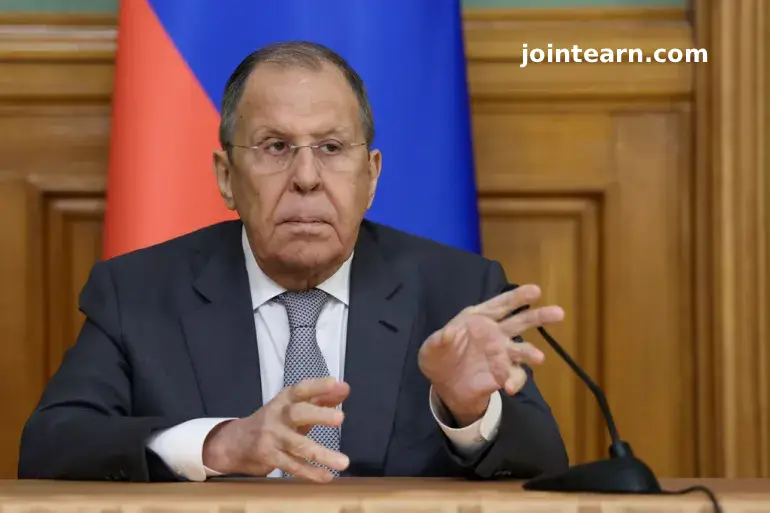
Russian Foreign Minister Sergey Lavrov has issued a stern warning to the United States, stating that Russia will respond in kind if the U.S. resumes nuclear weapons testing. Lavrov’s remarks echo prior statements by President Vladimir Putin, who has long maintained that any nuclear test by a major power will trigger a reciprocal Russian response.
Lavrov Cites Putin’s Nuclear Policy
Speaking to reporters on Tuesday, Lavrov reaffirmed Moscow’s nuclear stance, referencing comments made by President Putin in 2023.
“He stated that if any of the nuclear powers conducts a nuclear weapons test – not a carrier test or a subcritical experiment, but an actual nuclear weapons test – then Russia will respond in kind,” Lavrov said, according to Russia’s state news agency TASS.
The warning comes in the wake of U.S. President Donald Trump’s announcement in late October directing his administration to “immediately” resume nuclear testing, citing ongoing nuclear programs in other countries.
Historical Context of Nuclear Testing
Russia’s last full-scale nuclear test was conducted in 1990, while China’s last known test occurred in 1996. The United States has not tested a nuclear bomb since 1992, following the signing of the Comprehensive Nuclear-Test-Ban Treaty (CTBT) in 1996.
Since then, only India, Pakistan, and North Korea have carried out confirmed nuclear detonations. Although Russia recently tested a missile powered by nuclear energy in October 2025, it did not involve an actual nuclear explosion.
U.S. Clarifies Scope of Tests
Despite Trump’s statements, U.S. Energy Secretary Chris Wright clarified that the U.S. plans to conduct only component and system tests of nuclear weapons. These tests, known as noncritical explosions, simulate the functionality of nuclear warheads without triggering an actual nuclear detonation.
“I think the tests we’re talking about right now are system tests. These are not nuclear explosions,” Wright told Fox News, emphasizing the focus on operational readiness rather than detonations.
Russian and Chinese Responses
While Russia threatens a direct response if the U.S. resumes testing, Kremlin spokesperson Dmitry Peskov confirmed that Moscow has not received formal communication from Washington regarding nuclear testing plans. Nonetheless, Peskov noted that Putin has ordered the Russian military to study the advisability of preparations for nuclear testing.
China, meanwhile, has denied conducting nuclear tests and reiterated its commitment to the CTBT. Foreign Ministry spokesperson Mao Ning emphasized that China maintains a “no first use” nuclear policy, focuses on self-defense, and remains committed to peaceful development.
Concerns Over Nuclear Sabre-Rattling
Lavrov also criticized Pentagon nominee Robert Kadlec, who recently suggested that the U.S. should develop nuclear response options for regional conflicts below the strategic level.
“This directly indicates that this individual intends to view the use of nuclear weapons as a tool for achieving objectives the United States deems necessary in specific regions,” Lavrov said.
Russia has previously engaged in nuclear deterrence measures, notably putting its nuclear forces on high alert during the early stages of the 2022 invasion of Ukraine, highlighting Moscow’s willingness to leverage nuclear threats in geopolitical conflicts.
Implications for Global Security
Lavrov’s statements underscore growing tensions in the nuclear arms landscape, raising concerns over a renewed arms race. Analysts warn that any resumption of nuclear testing could destabilize existing treaties, provoke reciprocal testing by other nuclear powers, and increase global security risks.
The international community, including the United Nations and signatories of the CTBT, continues to monitor these developments closely, emphasizing the need for diplomacy and nuclear restraint.


Leave a Reply